Calocurb Blog
Our Latest News
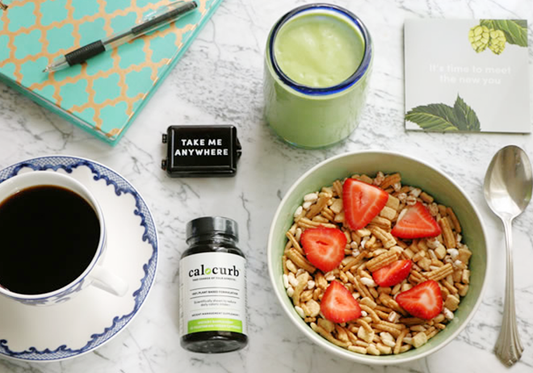
Better Living - Say goodbye to cravings with th...
SAY GOODBYE TO CRAVINGS WITH THIS 100% PLANT BASED SUPPLEMENT calocurb is a 100% plant-based, weight management supplement that’s been clinically shown to reduce calorie intake at meal or snack...
Better Living - Say goodbye to cravings with th...
SAY GOODBYE TO CRAVINGS WITH THIS 100% PLANT BASED SUPPLEMENT calocurb is a 100% plant-based, weight management supplement that’s been clinically shown to reduce calorie intake at meal or snack...

Brendan’s Personalized Fasting Diary
Giving Me Back the Control of My Health and Weight with ‘Reduced Frequency Eating’ The concept of control over food and ultimately our weight is something that probably seems almost...
Brendan’s Personalized Fasting Diary
Giving Me Back the Control of My Health and Weight with ‘Reduced Frequency Eating’ The concept of control over food and ultimately our weight is something that probably seems almost...

8 Tips to help you stop overeating
Binge eating is turning out to be one of the nastiest lifestyle habits, but one you can overcome. Click here to know about 8 sure-shot ways to stop overeating.
8 Tips to help you stop overeating
Binge eating is turning out to be one of the nastiest lifestyle habits, but one you can overcome. Click here to know about 8 sure-shot ways to stop overeating.
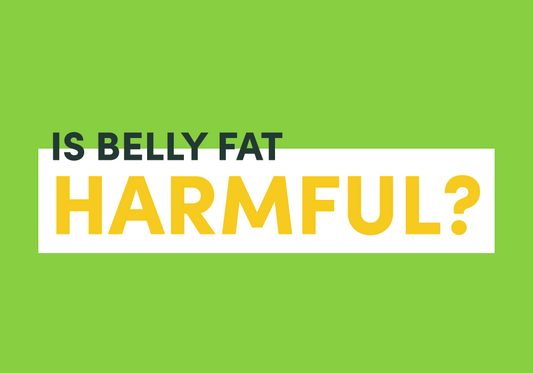
Is Belly Fat Harmful?
Belly fat is frustrating and ridiculously challenging to get rid of, but is it harmful? Click here to know the answer and also learn the ways to lose belly fat.
Is Belly Fat Harmful?
Belly fat is frustrating and ridiculously challenging to get rid of, but is it harmful? Click here to know the answer and also learn the ways to lose belly fat.

Does Fasting Help With a Healthy Mindset
Over the past decade, fasting has become a popular way for people to lose weight. However, fasting has other health benefits aside from weight loss, such as reducing inflammation, improving...
Does Fasting Help With a Healthy Mindset
Over the past decade, fasting has become a popular way for people to lose weight. However, fasting has other health benefits aside from weight loss, such as reducing inflammation, improving...

5 Impressive Health Benefits of Hops
Beer is not all that hops benefits! These flowers have other health advantages –the primary being weight loss. Click here to learn all about hops health benefits.
5 Impressive Health Benefits of Hops
Beer is not all that hops benefits! These flowers have other health advantages –the primary being weight loss. Click here to learn all about hops health benefits.

Alcohol and Fasting: What You Need to Know
Alcohol and Fasting: What You Need to Know is a collection of articles that tackles the tough questions on alcohol consumption and fasting.
Alcohol and Fasting: What You Need to Know
Alcohol and Fasting: What You Need to Know is a collection of articles that tackles the tough questions on alcohol consumption and fasting.

Is It Bad If I Stop Fasting Over the Weekend?
Can stopping fasting over the weekends lead to a binge eating disorder? There are certain drawbacks to breaking intermittent fasting on weekends. Click here to read about them.
Is It Bad If I Stop Fasting Over the Weekend?
Can stopping fasting over the weekends lead to a binge eating disorder? There are certain drawbacks to breaking intermittent fasting on weekends. Click here to read about them.

New Year, New Meaningful Goals
Last year was an emotional and physical rollercoaster for everyone. This year, we are looking at the positives! We will revisit our goals, re-evaluate if necessary, and put into place...
New Year, New Meaningful Goals
Last year was an emotional and physical rollercoaster for everyone. This year, we are looking at the positives! We will revisit our goals, re-evaluate if necessary, and put into place...

Food addiction: How it works & what you can do ...
Are you drawn to unhealthy foods? Do you find it hard to control your untimely cravings? You might have a food addiction. Worry not! Click here to understand fast food...
Food addiction: How it works & what you can do ...
Are you drawn to unhealthy foods? Do you find it hard to control your untimely cravings? You might have a food addiction. Worry not! Click here to understand fast food...

5 Best Foods for Clear and Healthy Skin
Guess what? It doesn't take a lot of unique foods for glowing skin! Just 5. Which are these? Click here to learn about the 5 foods good for the skin
5 Best Foods for Clear and Healthy Skin
Guess what? It doesn't take a lot of unique foods for glowing skin! Just 5. Which are these? Click here to learn about the 5 foods good for the skin

What Is Inflammation, and What Is It Doing to M...
Prolonged inflammation can trigger a series of ailments you may need relief from with the help of anti-inflammatory supplements. Learn what causes inflammation and how to tackle it.
What Is Inflammation, and What Is It Doing to M...
Prolonged inflammation can trigger a series of ailments you may need relief from with the help of anti-inflammatory supplements. Learn what causes inflammation and how to tackle it.

6 Healthy Foods That Can Help With Digestion
Is indigestion a way of life for you? It won't be any longer! Click here to learn about the six foods good for digestion, and bid adieu to antacids and...
6 Healthy Foods That Can Help With Digestion
Is indigestion a way of life for you? It won't be any longer! Click here to learn about the six foods good for digestion, and bid adieu to antacids and...

8 Best Plant-based Protein Sources
Your body cannot function without high-quality protein, which you can get through vegetarian sources. Click here to learn about 9 vegan proteins. These plant-based proteins boost your overall health.
8 Best Plant-based Protein Sources
Your body cannot function without high-quality protein, which you can get through vegetarian sources. Click here to learn about 9 vegan proteins. These plant-based proteins boost your overall health.

Can your gut bacteria affect your weight?
Your intestines are full of good gut bacteria! These help with several bodily functions like digestion and more. Click here to know more about them and how to improve gut...
Can your gut bacteria affect your weight?
Your intestines are full of good gut bacteria! These help with several bodily functions like digestion and more. Click here to know more about them and how to improve gut...

Does Sugar Cause Diabetes?
Cull the myths surrounding the consumption of sugar and diabetes. Click here to read about the diabetes types, whether sugar causes it, and does this disease put you at risk...
Does Sugar Cause Diabetes?
Cull the myths surrounding the consumption of sugar and diabetes. Click here to read about the diabetes types, whether sugar causes it, and does this disease put you at risk...

How Can I Stop Feeling Hungry All The Time With...
Hunger is your body’s way of telling you that it’s time to eat. Unfortunately, some people may feel hungry all the time, even if they eat regular meals.
How Can I Stop Feeling Hungry All The Time With...
Hunger is your body’s way of telling you that it’s time to eat. Unfortunately, some people may feel hungry all the time, even if they eat regular meals.

Is it Bad to Eat Before Bed?
A lot of people are concerned about eating too close to bedtime. On one hand, some people say you’re more likely to gain weight if you eat too late at...
Is it Bad to Eat Before Bed?
A lot of people are concerned about eating too close to bedtime. On one hand, some people say you’re more likely to gain weight if you eat too late at...

5 Proven Ways to Fight Bloating
If you're noticing that you're carrying around a few extra pounds, take a look at how your diet and lifestyle choices are affecting your weight. There are some easy changes...
5 Proven Ways to Fight Bloating
If you're noticing that you're carrying around a few extra pounds, take a look at how your diet and lifestyle choices are affecting your weight. There are some easy changes...

5 Effortless Ways to Be Healthier
Wondering how to get healthier despite your busy schedule, which leaves you little time to focus on your diet? Fret not! All you need to do is follow these 5...
5 Effortless Ways to Be Healthier
Wondering how to get healthier despite your busy schedule, which leaves you little time to focus on your diet? Fret not! All you need to do is follow these 5...

6 Healthy Snacks to Keep You Energized this summer
Don't let the summer heat sap your energy. Keep yourself energized by eating good healthy snacks. Learn the 6 healthy snacks to consume this summer by clicking here.
6 Healthy Snacks to Keep You Energized this summer
Don't let the summer heat sap your energy. Keep yourself energized by eating good healthy snacks. Learn the 6 healthy snacks to consume this summer by clicking here.

Does Your Metabolism Slow Down as You Age?
Are you wondering when does the metabolism slow down? It is true that metabolism with age slows down. However, there are ways to keep fit even with a slowing metabolism....
Does Your Metabolism Slow Down as You Age?
Are you wondering when does the metabolism slow down? It is true that metabolism with age slows down. However, there are ways to keep fit even with a slowing metabolism....

Healthy Hearty Recipes
We may still be enjoying the warm weather, but we have started getting a few brisk nights creeping through recently.
Healthy Hearty Recipes
We may still be enjoying the warm weather, but we have started getting a few brisk nights creeping through recently.

A Quick Guide to Mindful Eating
Eating mindfully is about being aware of what you're eating, why you're eating it, and how much you're eating. It's about taking the time to enjoy food without inhaling your...
A Quick Guide to Mindful Eating
Eating mindfully is about being aware of what you're eating, why you're eating it, and how much you're eating. It's about taking the time to enjoy food without inhaling your...

Simple Ways to Lose Belly Fat
Losing belly fat is not a tough job if you know the right techniques. Although it might seem difficult, there are many simple ways to lose belly fat fast.
Simple Ways to Lose Belly Fat
Losing belly fat is not a tough job if you know the right techniques. Although it might seem difficult, there are many simple ways to lose belly fat fast.

5 Natural Ways to Reduce Menopause Symptoms
The menopause transition can be accompanied by a wide array of symptoms. Here are five natural ways to reduce menopause symptoms.
5 Natural Ways to Reduce Menopause Symptoms
The menopause transition can be accompanied by a wide array of symptoms. Here are five natural ways to reduce menopause symptoms.

Calocurb Says Relax
We’ve curated a selection of the best apps to help you unwind or help give you a little extra motivation that you may need right now.
Calocurb Says Relax
We’ve curated a selection of the best apps to help you unwind or help give you a little extra motivation that you may need right now.

Fasting & Detox
Fasting and detoxing provide a way to break free from toxic addictions, and it can even help with chronic health conditions. Fasting is a tool in the arsenal of any...
Fasting & Detox
Fasting and detoxing provide a way to break free from toxic addictions, and it can even help with chronic health conditions. Fasting is a tool in the arsenal of any...

5 reasons you’re always tired (and what you can...
Have you ever wondered why you’re so tired all the time? You’re not alone. Around 1 in 5 people report feeling tired most of the time (1). Here are 5...
5 reasons you’re always tired (and what you can...
Have you ever wondered why you’re so tired all the time? You’re not alone. Around 1 in 5 people report feeling tired most of the time (1). Here are 5...
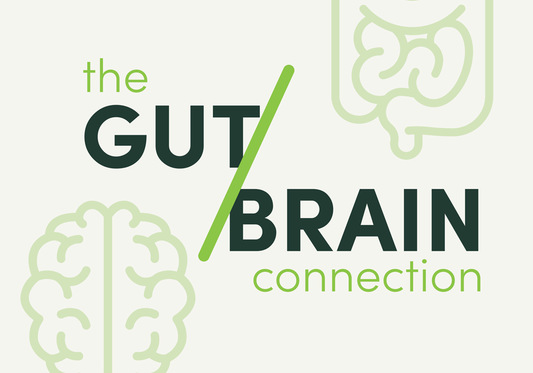
The Gut-Brain Connection: How It Works
Have you ever wondered why you can always trust your gut? It’s likely because your brain and gut are constantly communicating with each other.
The Gut-Brain Connection: How It Works
Have you ever wondered why you can always trust your gut? It’s likely because your brain and gut are constantly communicating with each other.
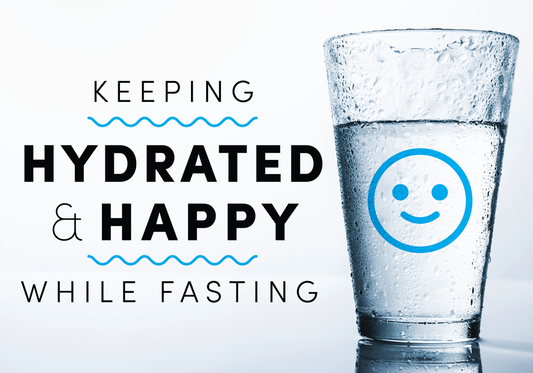
Keeping Hydrated and Happy While Fasting
Using a natural supplement like Calocurb to help you stick to your fasting schedule, it's essential to keep your fluid intake high.
Keeping Hydrated and Happy While Fasting
Using a natural supplement like Calocurb to help you stick to your fasting schedule, it's essential to keep your fluid intake high.
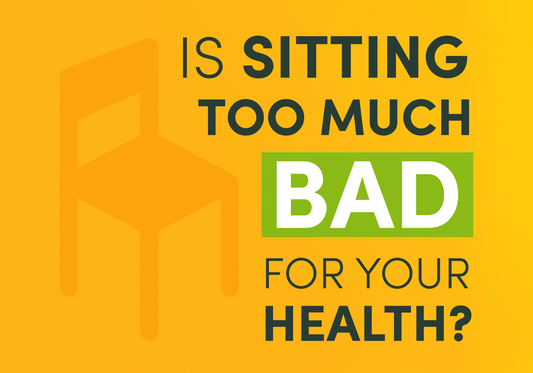
Is Sitting Too Much Bad For Your Health?
On average, most adults sit for around 9 to 11 hours per day. Since most of us sit for too long, you may wonder if it has negative health consequences?...
Is Sitting Too Much Bad For Your Health?
On average, most adults sit for around 9 to 11 hours per day. Since most of us sit for too long, you may wonder if it has negative health consequences?...

Top Tips for Tip Top Gut Health
Your gut health is connected to most parts of your body, and it's affected by most things that you do to your body.
Top Tips for Tip Top Gut Health
Your gut health is connected to most parts of your body, and it's affected by most things that you do to your body.

What do Artificial Sweeteners do to Your Body
Artificial sweeteners might seems like a perfect alternative to sugar – but are they all that good for you?
What do Artificial Sweeteners do to Your Body
Artificial sweeteners might seems like a perfect alternative to sugar – but are they all that good for you?
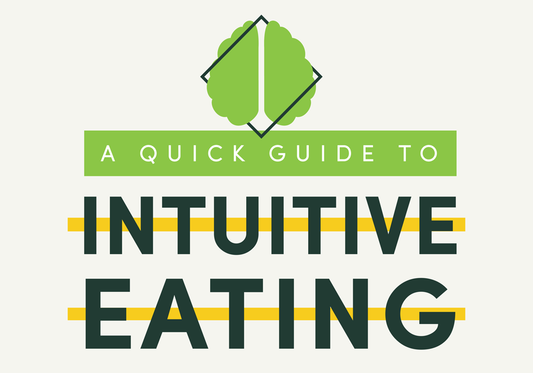
A Quick Guide to Intuitive Eating
Intuitive eating fights the idea that you need to follow a diet. It helps you relearn how to trust your body and develop a healthy attitude towards food and your...
A Quick Guide to Intuitive Eating
Intuitive eating fights the idea that you need to follow a diet. It helps you relearn how to trust your body and develop a healthy attitude towards food and your...

Easy Ways to Eat More Veges
Vegetables are really good for you, and with a bit of planning can easily fit in to your eating plan.
Easy Ways to Eat More Veges
Vegetables are really good for you, and with a bit of planning can easily fit in to your eating plan.
